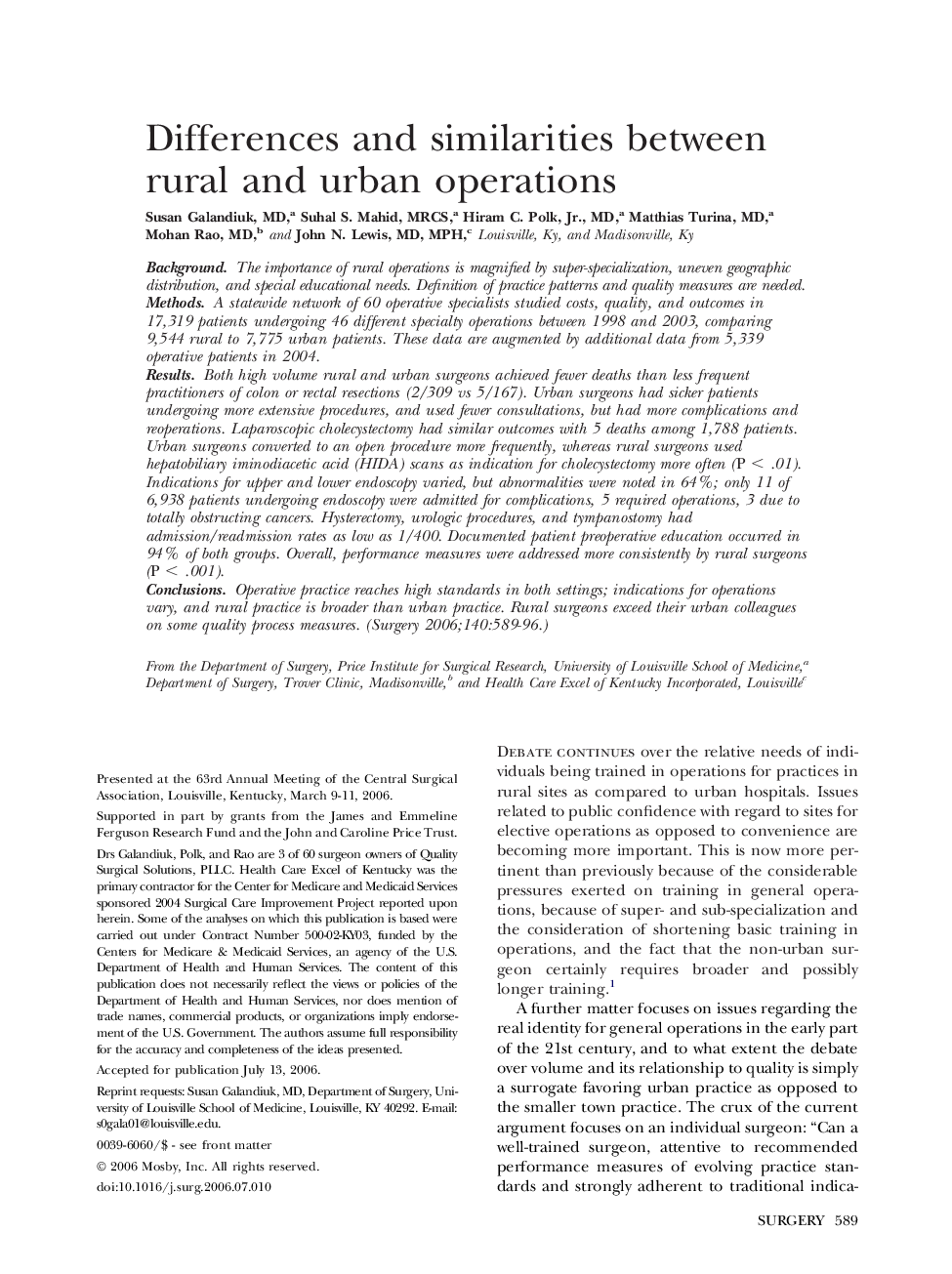| Article ID | Journal | Published Year | Pages | File Type |
|---|---|---|---|---|
| 4309972 | Surgery | 2006 | 8 Pages |
BackgroundThe importance of rural operations is magnified by super-specialization, uneven geographic distribution, and special educational needs. Definition of practice patterns and quality measures are needed.MethodsA statewide network of 60 operative specialists studied costs, quality, and outcomes in 17,319 patients undergoing 46 different specialty operations between 1998 and 2003, comparing 9,544 rural to 7,775 urban patients. These data are augmented by additional data from 5,339 operative patients in 2004.ResultsBoth high volume rural and urban surgeons achieved fewer deaths than less frequent practitioners of colon or rectal resections (2/309 vs 5/167). Urban surgeons had sicker patients undergoing more extensive procedures, and used fewer consultations, but had more complications and reoperations. Laparoscopic cholecystectomy had similar outcomes with 5 deaths among 1,788 patients. Urban surgeons converted to an open procedure more frequently, whereas rural surgeons used hepatobiliary iminodiacetic acid (HIDA) scans as indication for cholecystectomy more often (P < .01). Indications for upper and lower endoscopy varied, but abnormalities were noted in 64%; only 11 of 6,938 patients undergoing endoscopy were admitted for complications, 5 required operations, 3 due to totally obstructing cancers. Hysterectomy, urologic procedures, and tympanostomy had admission/readmission rates as low as 1/400. Documented patient preoperative education occurred in 94% of both groups. Overall, performance measures were addressed more consistently by rural surgeons (P < .001).ConclusionsOperative practice reaches high standards in both settings; indications for operations vary, and rural practice is broader than urban practice. Rural surgeons exceed their urban colleagues on some quality process measures.
